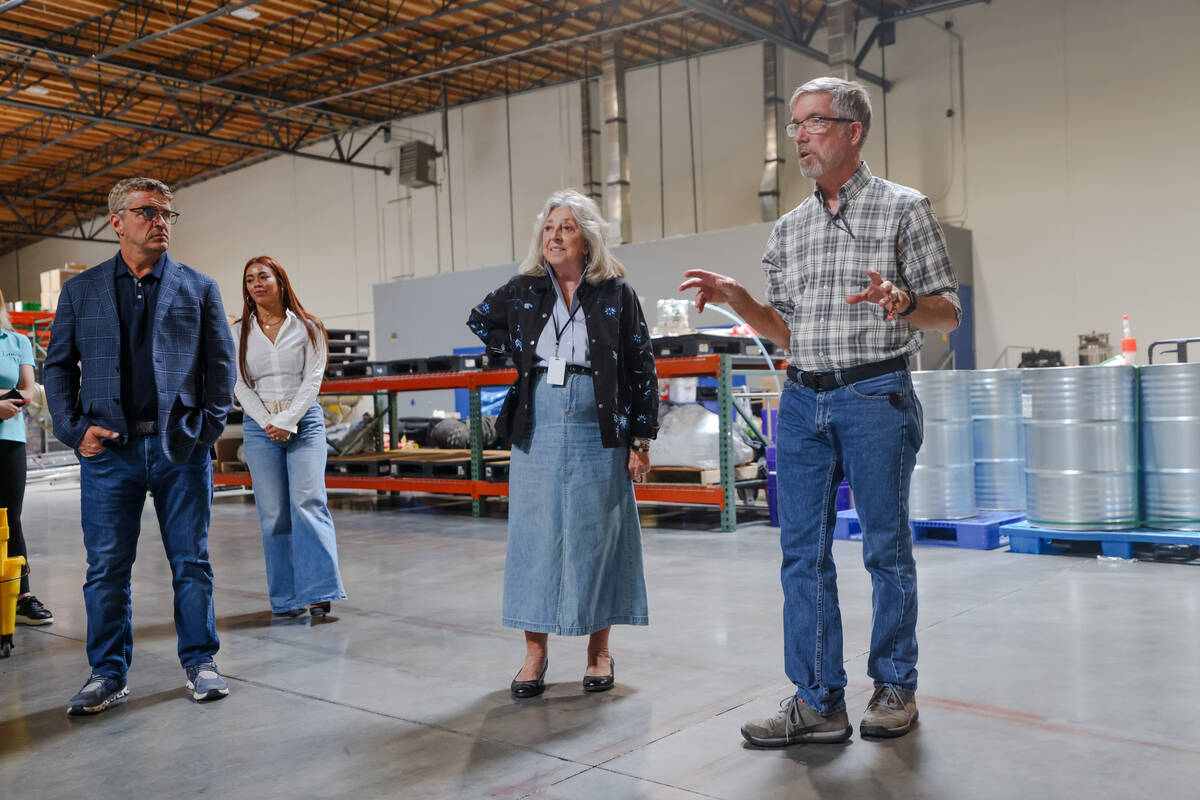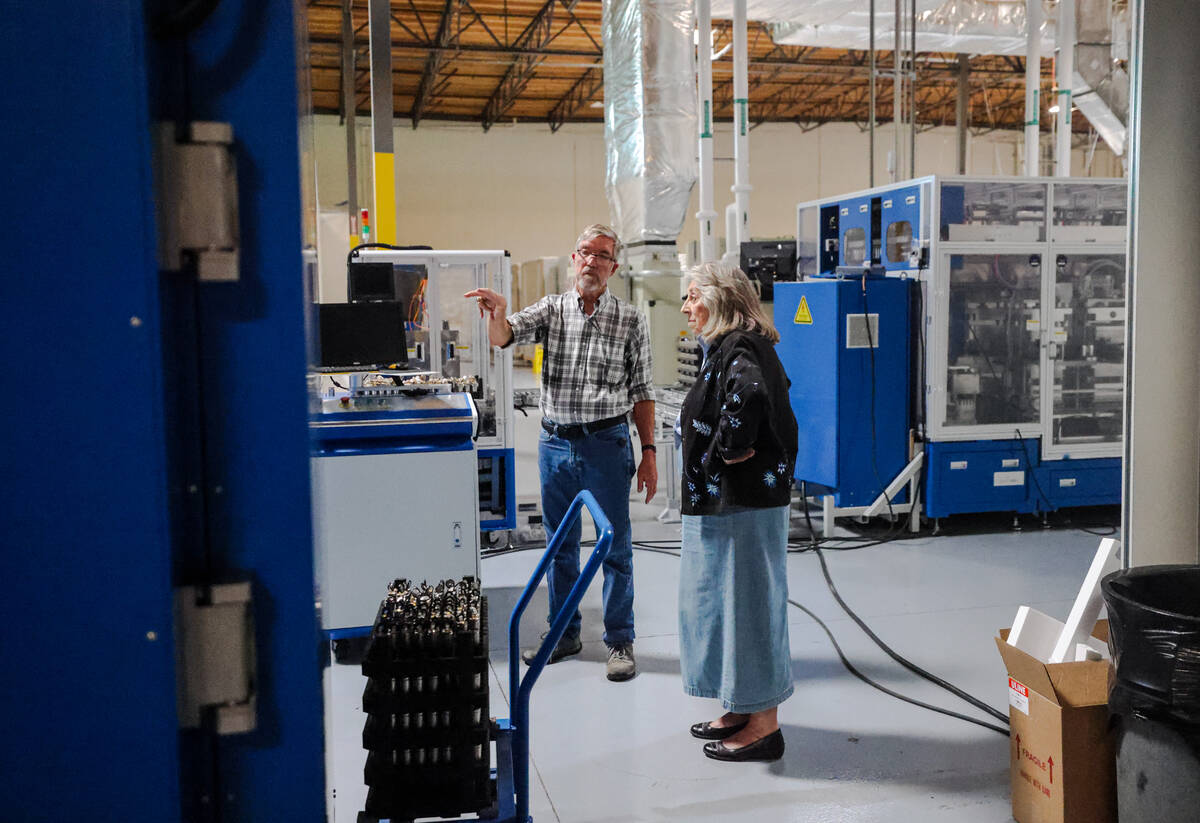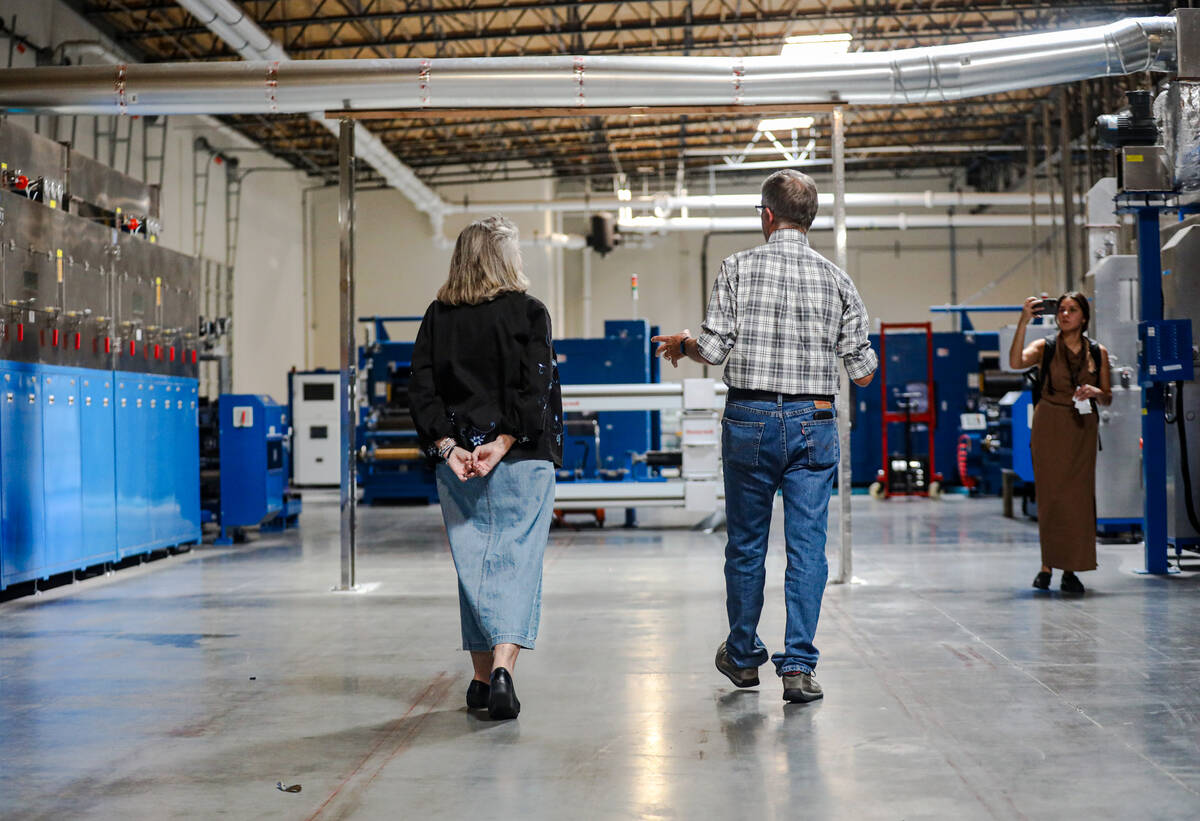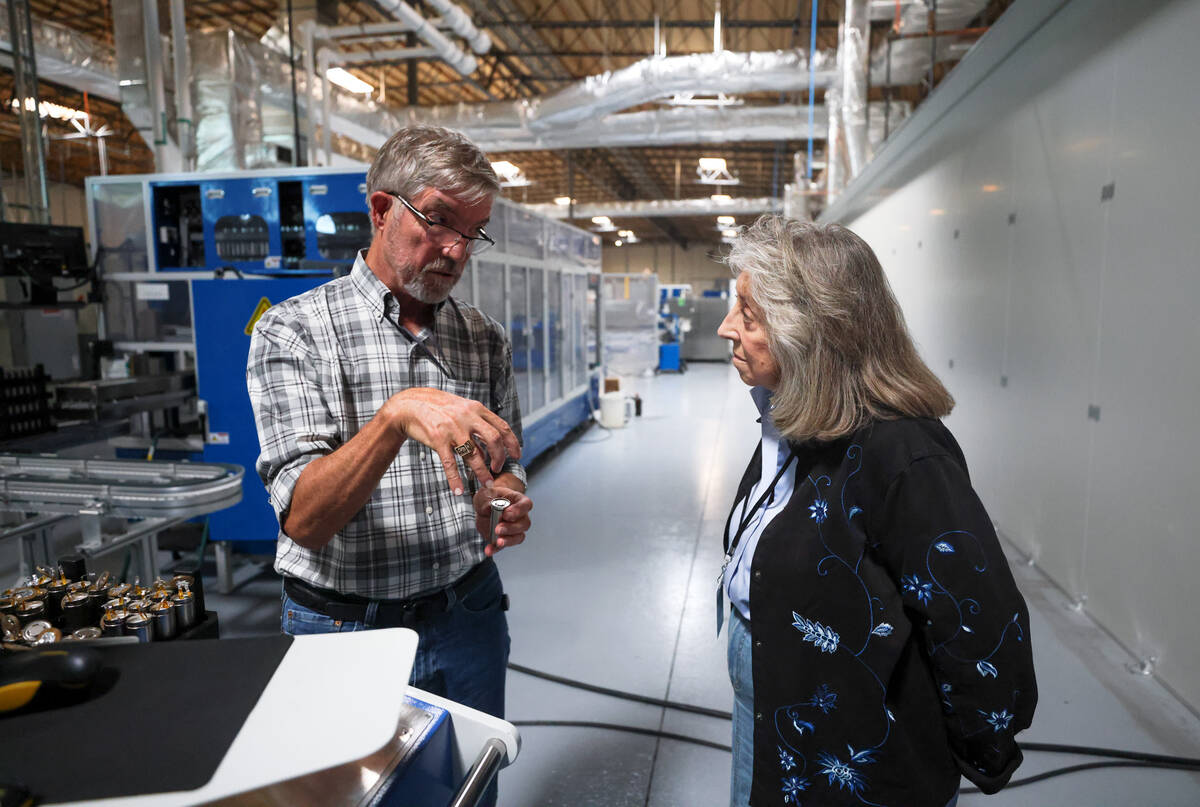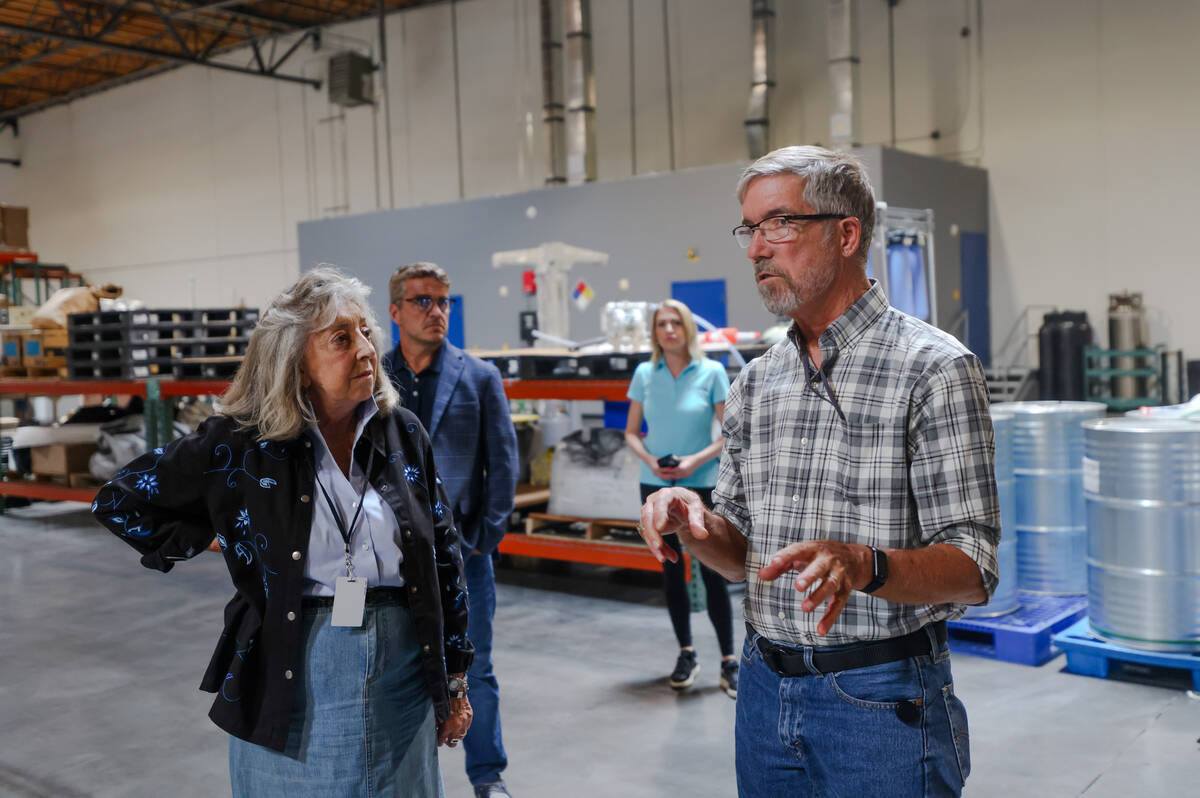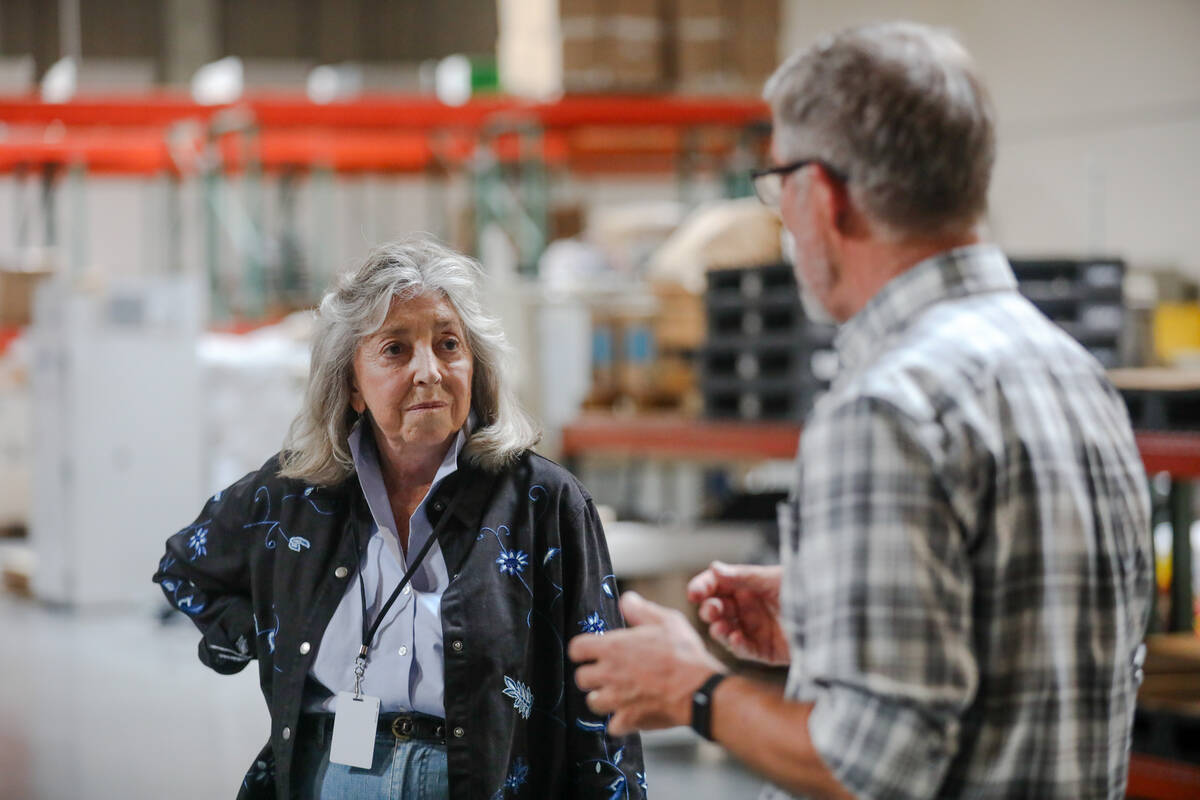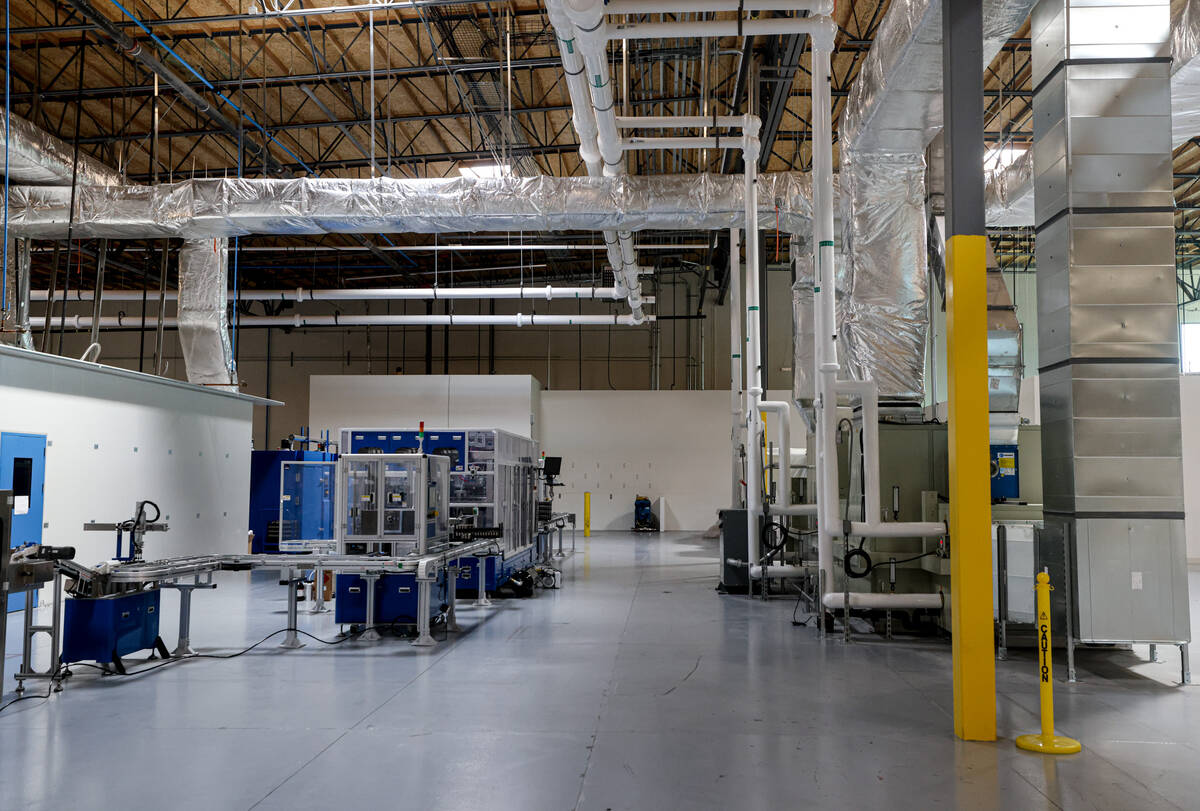Henderson company looking to power the nation, bring manufacturing jobs to US
In a pair of quiet warehouses in Henderson a company called Lithion Battery Inc. is making plans to power the nation.
The company has been operating a battery manufacturing facility, one of the few in the U.S., in Henderson since 2020 but has plans to expand its operations of making batteries and energy storage systems that can be used in a multitude of industries.
Lithion has its headquarters in Henderson and its Nevada operations can support a wide range of energy storage products from utility-grade energy storage batteries to batteries for vaping or farming equipment, CEO Tyler Armstrong said.
“Our customers are literally across the board because electrification is happening in every industry,” he said. “You name it, they’re electrifying it.”
The first Lithion facility in Henderson is about 80,000 square feet and the company should expand to a second 125,000-square-foot building in Henderson in the next few months. Armstrong said the company should be able to commercially operate its two Nevada facilities by the end of March 2024.
Lithion employs about 150 employees in Henderson — which makes up about 25 percent of its total workforce — and is set to add 100 employees in Nevada over the next year to keep up with its expansion plans, Armstrong said.
Lithion recently gave a tour of its facility to Rep. Dina Titus, D-Nev., to show the impact U.S. battery manufacturing can have. and Titus walked away impressed with Lithion’s operations and how it fits into the local economy.
“It’s kind of a side of Southern Nevada that other people don’t know about,” Titus said. “They know the Strip … but this is what’s really going on. This is the only place in the country that makes these kinds of lithium batteries.”
Bringing industry to U.S.
Lithion is one of the few companies bringing manufacturing operations to the United States, the company has manufacturing facilities that make specific battery parts such as nonrechargeable cells and batteries used in the medical industry in Boston, Houston and across Canada, Armstrong said.
Most battery manufacturers are based in China since the country produces a vast majority of the equipment needed for manufacturing, according to Armstrong. He said challenges still remain to bring manufacturing operations to the U.S. since companies like Lithion still need to buy a lot of Chinese equipment, which comes with tariffs that total up to 25 percent of the final sale, to make batteries.
Legislation such as the Inflation Reduction Act and the CHIPS and Science Act, both of which provide incentives for manufacturers to expand operations in the U.S., can help ease the problem of tariffs by creating more domestic options for companies like Lithion, Titus said.
“Investing in (the Inflation Reduction Act and the CHIPs and Science Act) like we did, all of that helps our economy, generally,” she said. “Here locally, it’s good jobs that put people to work.”
Lithion also got a $533,000 tax abatement from the Governor’s Office of Economic Development in 2020 for its Henderson operation. Lithion in its application for the abatement estimated it would add 42 jobs over its first five years in Nevada, which it has already exceeded, and have an economic impact of over $140 million and generate $2.9 million in new tax revenue.
The GOED application showed that Lithion also considered placing its Henderson operations in Canada, Mexico, Texas or on the U.S. East Coast but ultimately decided on Nevada because of the economic development incentives offered. Armstrong said Henderson was chosen since its dry climate is conducive for battery manufacturing and a lot of experts in the U.S. battery manufacturing space lived in the area.
Armstrong believes the next big area for the battery industry is building out recycling facilities.
“All these batteries are going out now, the recycling ability of them in the next five to seven years is going to be a major problem, but it’s going to be a huge industry,” Armstrong said.
Nevada is already looking to get this type of facility in the state as Redwood Materials Inc. got a $105.6 million tax abatement for a battery recycling facility in Storey County.
Contact Sean Hemmersmeier at shemmersmeier@reviewjournal.com. Follow @seanhemmers34 on Twitter.



